How to Land a Spot at the Most Sought-After Sports Camps This SummerHow to Land a Spot at the Most Sought-After Sports Camps This Summer
Introduction to elite sports camps
Every summer, thousands of aspiring young athletes flock to premier sports camps across the country hoping to get noticed by college scouts and take their game to the next level. But with acceptance often limited to the very best prospects, competition is fierce for coveted spots at camps like the Yale Lacrosse Camp or renowned Catalyst Athletics MVP Camp.
Succeeding at an elite camp takes more than just talent and hard work on the field. You need a smart, proactive strategy to set yourself apart from the crowd and capitalize on the unique opportunities these camps provide. Follow these insider tips to maximize your chances of landing a place at a top camp and making your mark once you get there.
Do Your Research to Find the Right Fit
With so many great camps out there, how do you narrow down your options to find the best fit? First, make a list of your top schools or programs you’re interested in, along with any camps those coaches are affiliated with. Getting on their home turf for a few days is invaluable face time.
Evaluate the camp’s coaching staff, training philosophy, facilities, level of competition, and alumni. Read past camper reviews to get a feel for the environment and experience. Factoring in logistics like dates, location, and cost will also help determine if a camp is feasible.
Make a Great First Impression

First impressions matter, so put your best foot forward right from the start. Arrive early, dressed professionally and ready to participate. Greet coaches confidently, make eye contact and introduce yourself. Be friendly and engage with other campers too.
Coaches will be evaluating your coachability, effort level, attitude, competitive spirit, and how you carry yourself on and off the field. Bring energy, hustle, and a positive team-first mentality to every drill.
Stand Out During Drills and Scrimmages
When it’s time to compete, focus on showcasing your strengths and demonstrating fundamental skills. Move well without the ball, communicate effectively, and play smart positional lacrosse. Minimize unforced errors and don’t get flustered. Hustle back on defense.
Coaches want to see your athleticism and ability to think on your feet. Don’t try to overdo it with flashy, high-risk plays – steady and consistent execution is key.
Get Quality Face Time with Coaches

When coaches engage you in conversation, it’s your chance to connect. Share your academic and athletic accomplishments, then listen attentively to their feedback. Avoid lengthy life stories – be succinct, polite, and conversational.
Ask thoughtful questions that show sincere interest in their program and coaching philosophy. Discuss how you’d embrace their training system and team culture. Share relevant career aspirations too.
Build Relationships with Fellow Recruits
Surrounding yourself with top talent pushes you to elevate your game. Getting to know fellow standout players also forges bonds that continue beyond camp. Exchange contact info and follow promising prospects on social media.
Be a connector – introduce fellow campers to coaches and proudly cheer on teammates. Talent gets you noticed, but character and team chemistry matter too.
Leaving camp with expanded personal and professional networks gives you a head start on recruiting.
Keep Communication Flowing After Camp
The Significance of Elite Sports Camps
Why are these camps so crucial for aspiring athletes? Elite sports camps serve as a nexus point where talent meets opportunity. They provide:
- Direct exposure to college coaches and scouts
- High-level training and skill development
- Networking opportunities with fellow elite athletes
- A taste of collegiate-level competition
- Insight into specific college programs and their cultures
For many young athletes, these camps can be a turning point in their sports careers, potentially opening doors to collegiate opportunities and beyond.
Strategic Research: Finding Your Ideal Camp Match
With a plethora of sports camps available, how can you pinpoint the ones that align best with your goals and abilities? The key lies in thorough, strategic research.
Crafting Your Camp Shortlist
Begin by creating a list of your top schools or programs of interest. Include any camps affiliated with coaches from these institutions. This approach allows you to gain valuable face time with potential future coaches and familiarize yourself with their programs.

When evaluating camps, consider the following factors:
- Coaching staff credentials and experience
- Training philosophy and methods
- Quality of facilities
- Level of competition among attendees
- Notable alumni and their achievements
- Camper reviews and testimonials
Don’t overlook practical considerations such as camp dates, location, and cost. These factors will help determine the feasibility of attending specific camps.
Digging Deeper: Beyond the Surface
To gain a comprehensive understanding of each camp, go beyond their promotional materials. Reach out to past attendees through social media or sports forums to get first-hand accounts of their experiences. This can provide valuable insights into the camp’s atmosphere, intensity, and overall value.
Are there opportunities for one-on-one coaching sessions? Do the camps offer specialized training for your position? Understanding these nuances can help you choose camps that will best serve your developmental needs.
Making a Lasting First Impression: Your Camp Debut
In the competitive world of elite sports camps, first impressions can make or break your chances of standing out. How can you ensure you start on the right foot?

The Power of Punctuality and Preparation
Arrive at the camp early, dressed in appropriate athletic attire, and ready to participate. This demonstrates your enthusiasm and professionalism. Greet coaches with confidence, maintaining eye contact as you introduce yourself. Engage positively with fellow campers, showing your ability to be a team player from the outset.
Remember, coaches are evaluating more than just your physical skills. They’re assessing your:
- Coachability
- Effort level
- Attitude
- Competitive spirit
- Behavior on and off the field
Bring high energy, hustle, and a positive, team-first mentality to every drill and interaction. These qualities can set you apart even before the first whistle blows.
The Art of Self-Presentation
How you carry yourself speaks volumes about your character and potential. Stand tall, speak clearly, and show respect to everyone – from coaches and staff to fellow campers and facility workers. Your demeanor should reflect maturity, discipline, and a genuine passion for your sport.

Come prepared with a brief personal introduction that highlights your key achievements and goals. This “elevator pitch” can be invaluable when meeting coaches or influential figures at the camp.
Showcasing Your Skills: Excelling in Drills and Scrimmages
When it’s time to showcase your abilities on the field, how can you ensure you stand out for the right reasons? The key is to focus on demonstrating your strengths while showcasing your fundamental skills and game intelligence.
Balancing Fundamentals and Flair
In drills and scrimmages, prioritize consistent execution of fundamental skills. Move well without the ball, communicate effectively with teammates, and display smart positional play. Minimize unforced errors and maintain composure under pressure.
While it’s tempting to attempt flashy, high-risk plays to catch the eye, coaches are often more impressed by athletes who demonstrate:
- Solid fundamental skills
- Game intelligence
- Consistency
- Ability to adapt to new systems or strategies
- Leadership on and off the field
Show your versatility by excelling in various drills, even those outside your primary position. This demonstrates your overall athleticism and coachability.

The Importance of Hustle and Heart
Never underestimate the impact of effort and attitude. Hustle back on defense, encourage teammates, and maintain a positive demeanor even when facing challenges. Coaches are looking for athletes who can contribute to a winning team culture, not just individual standouts.
Remember, every moment at camp is an opportunity to impress. Stay focused and give your all, even during warm-ups or cool-down periods. Your consistent effort and enthusiasm can set you apart in a sea of talent.
Maximizing Coach Interactions: Building Meaningful Connections
Securing face time with coaches is a crucial aspect of the camp experience. How can you make the most of these interactions and leave a lasting impression?
The Art of Effective Communication
When engaging with coaches, strike a balance between confidence and humility. Share your accomplishments succinctly, then listen attentively to their feedback. Avoid long-winded stories; instead, be concise, polite, and conversational.
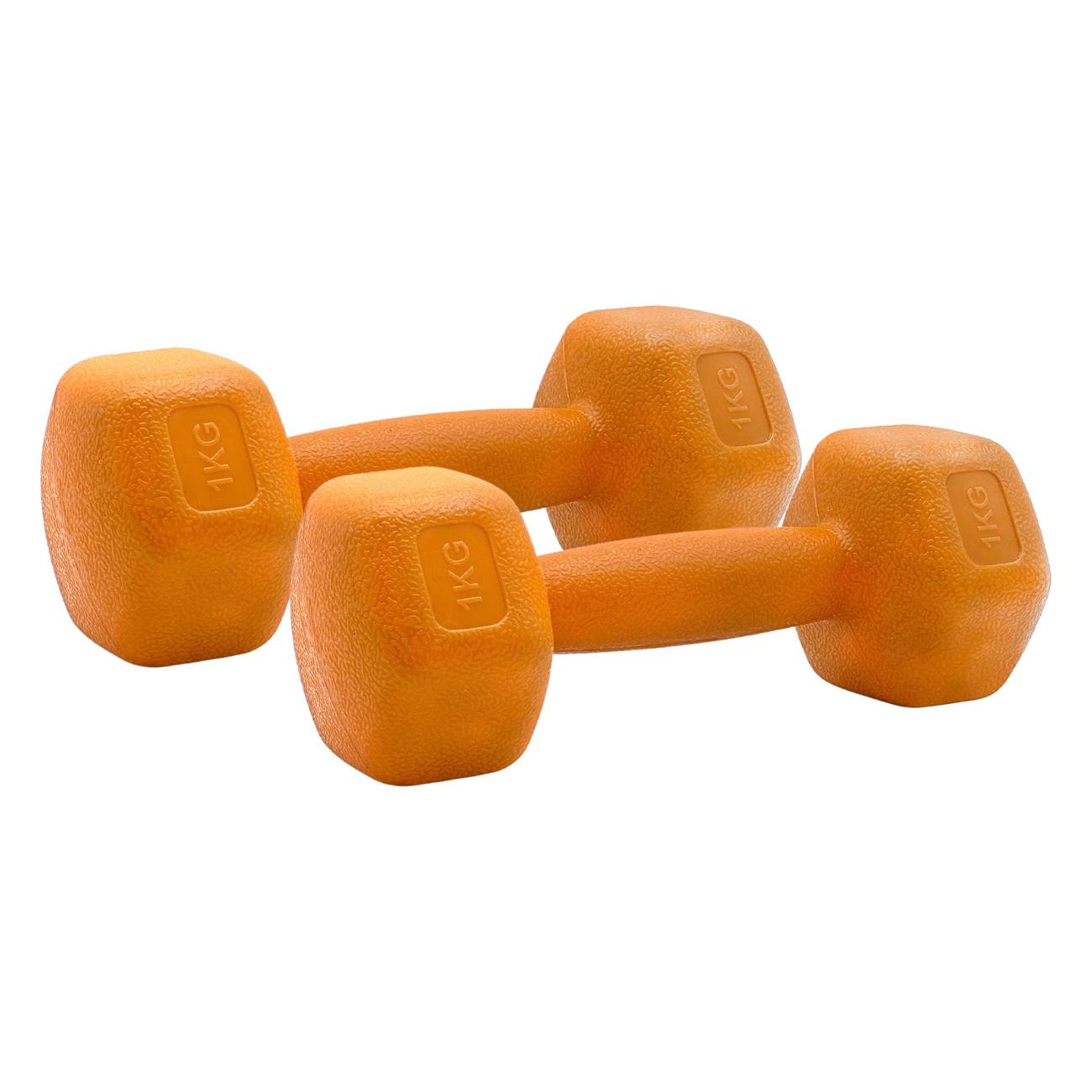
Prepare thoughtful questions that demonstrate your genuine interest in their program and coaching philosophy. For example:
- “How does your training system develop players over their college career?”
- “What qualities do you look for in recruits beyond their on-field skills?”
- “How does your program support student-athletes in balancing academics and athletics?”
These questions show that you’re thinking seriously about your future and how you might fit into their program.
Showcasing Your Character and Aspirations
Use these interactions to give coaches insight into your character and long-term goals. Discuss how you’d embrace their training system and contribute to the team culture. Share relevant academic and career aspirations that align with their program’s values.
Remember, coaches are looking for athletes who will be good fits for their programs both on and off the field. Demonstrating maturity, ambition, and a strong work ethic can set you apart from other talented prospects.
Networking Strategies: Cultivating Relationships with Fellow Athletes
While impressing coaches is crucial, building connections with fellow campers can be equally valuable. How can you leverage these relationships to enhance your camp experience and future prospects?

The Power of Peer Connections
Surrounding yourself with top talent naturally pushes you to elevate your game. Moreover, the relationships you forge at camp can extend far beyond the few days you spend together. These connections can lead to:
- Valuable insights into other college programs
- Training partners and friendly competition
- A support network as you navigate the recruiting process
- Potential teammates in college or beyond
Exchange contact information and connect on social media with promising prospects. Stay in touch after camp, sharing training tips, game highlights, and words of encouragement.
Being a Team Player
Demonstrate your leadership and team-first mentality by being a connector at camp. Introduce fellow campers to coaches when appropriate, and genuinely celebrate your teammates’ successes. This behavior showcases your ability to contribute positively to team dynamics – a quality highly valued by coaches.
Remember, while individual talent gets you noticed, character and team chemistry often make the difference in recruiting decisions. By fostering positive relationships with your peers, you’re not only enhancing your camp experience but also demonstrating valuable intangible qualities to observing coaches.
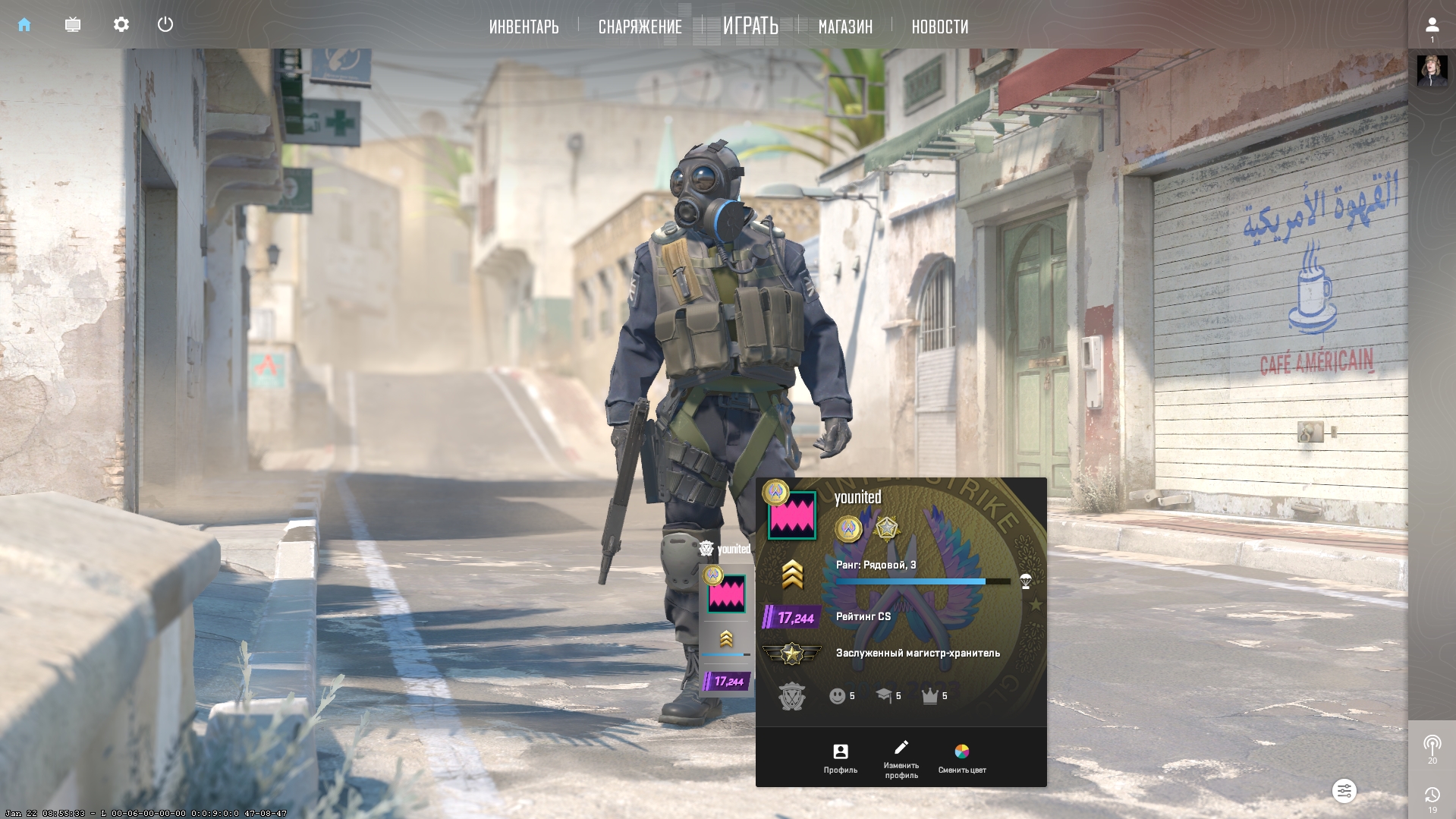
Post-Camp Strategy: Maintaining Momentum and Interest
The end of camp doesn’t mean the end of your opportunity to make an impression. How can you maintain and build upon the connections and interest you’ve generated during your time at camp?
The Follow-Up: Timing and Content
Within a week of camp conclusion, send personalized thank-you emails to coaches you interacted with. In these messages:
- Reiterate your interest in their program
- Recap any notable interactions or feedback you received
- Include recent video highlights or updated stats that reinforce your fit for their program
- Express gratitude for the learning opportunity and any specific insights gained
This prompt follow-up keeps you fresh in coaches’ minds and demonstrates your professionalism and genuine interest.
Sustaining Long-Term Interest
Throughout the following season, maintain communication with periodic updates on your academic and athletic progress. This could include:
- Significant game or tournament performances
- Academic achievements or awards
- Leadership roles or community service involvement
- Any new skills or areas of your game you’ve improved
These updates should be concise and relevant, positioning you as a dedicated student-athlete who continues to grow and align with their program’s values.
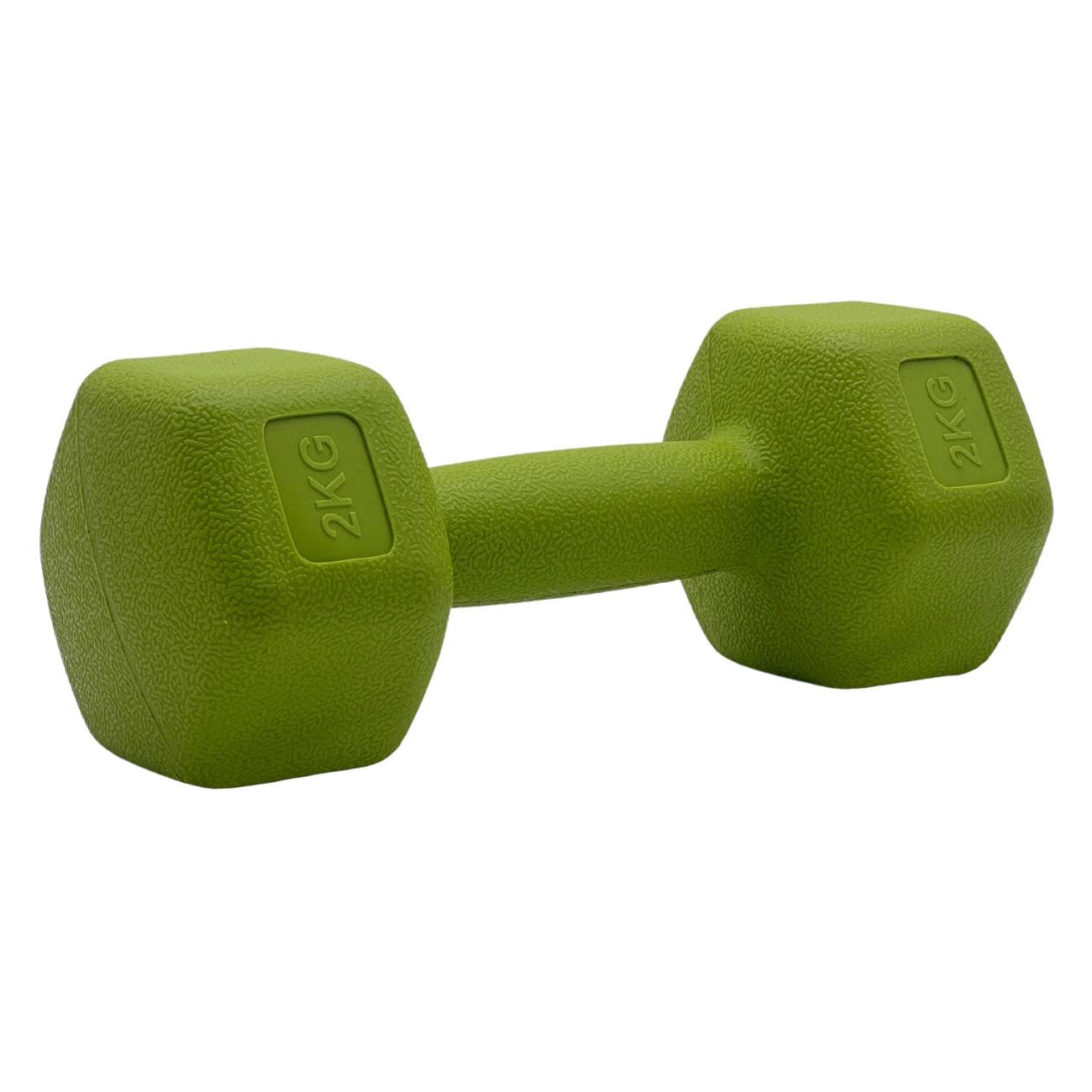
If a coach expressed particular interest or encouraged you to apply, take proactive steps to nurture that connection. This might involve sending your admissions essay for feedback or arranging an unofficial campus visit. Demonstrating continued enthusiasm and initiative can significantly boost your chances of admission.
Leveraging Technology: Creating a Standout Sports Portfolio
In today’s digital age, how can aspiring athletes use technology to enhance their visibility and appeal to college programs? Two key elements of a modern sports portfolio are highlight videos and digital resumes.
Crafting an Impactful Highlight Video
A well-produced highlight video allows coaches to evaluate your skills anytime, anywhere. To create a video that stands out:
- Keep it concise – aim for 3-5 minutes of your best plays
- Start with your most impressive clips to grab attention
- Include a variety of skills relevant to your position
- Use multiple camera angles to showcase different aspects of your game
- Add subtle, energizing background music to enhance engagement
- Include on-screen text to highlight key stats or achievements
Host your video on platforms like Vimeo or as an unlisted YouTube link for easy sharing with coaches. Ensure the video is easily accessible on mobile devices, as coaches often review these on the go.

Designing a Compelling Digital Resume
A well-crafted digital resume complements your highlight video by providing a comprehensive overview of your athletic and academic achievements. Your resume should include:
- Key personal information and contact details
- Academic achievements, including GPA and standardized test scores
- Athletic statistics and honors
- Leadership experiences and community involvement
- References from coaches or mentors
Design your resume with a clean, professional layout. Consider incorporating your jersey number or school colors for a personalized touch that makes your resume memorable.
By combining a powerful highlight video with a comprehensive digital resume, you create a compelling package that showcases your potential as a student-athlete.
Introduction to elite sports camps
Every summer, thousands of aspiring young athletes flock to premier sports camps across the country hoping to get noticed by college scouts and take their game to the next level. But with acceptance often limited to the very best prospects, competition is fierce for coveted spots at camps like the Yale Lacrosse Camp or renowned Catalyst Athletics MVP Camp.
Succeeding at an elite camp takes more than just talent and hard work on the field. You need a smart, proactive strategy to set yourself apart from the crowd and capitalize on the unique opportunities these camps provide. Follow these insider tips to maximize your chances of landing a place at a top camp and making your mark once you get there.
Do Your Research to Find the Right Fit
With so many great camps out there, how do you narrow down your options to find the best fit? First, make a list of your top schools or programs you’re interested in, along with any camps those coaches are affiliated with. Getting on their home turf for a few days is invaluable face time.
Evaluate the camp’s coaching staff, training philosophy, facilities, level of competition, and alumni. Read past camper reviews to get a feel for the environment and experience. Factoring in logistics like dates, location, and cost will also help determine if a camp is feasible.
Make a Great First Impression

First impressions matter, so put your best foot forward right from the start. Arrive early, dressed professionally and ready to participate. Greet coaches confidently, make eye contact and introduce yourself. Be friendly and engage with other campers too.
Coaches will be evaluating your coachability, effort level, attitude, competitive spirit, and how you carry yourself on and off the field. Bring energy, hustle, and a positive team-first mentality to every drill.
Stand Out During Drills and Scrimmages
When it’s time to compete, focus on showcasing your strengths and demonstrating fundamental skills. Move well without the ball, communicate effectively, and play smart positional lacrosse. Minimize unforced errors and don’t get flustered. Hustle back on defense.
Coaches want to see your athleticism and ability to think on your feet. Don’t try to overdo it with flashy, high-risk plays – steady and consistent execution is key.
Get Quality Face Time with Coaches

When coaches engage you in conversation, it’s your chance to connect. Share your academic and athletic accomplishments, then listen attentively to their feedback. Avoid lengthy life stories – be succinct, polite, and conversational.
Ask thoughtful questions that show sincere interest in their program and coaching philosophy. Discuss how you’d embrace their training system and team culture. Share relevant career aspirations too.
Build Relationships with Fellow Recruits
Surrounding yourself with top talent pushes you to elevate your game. Getting to know fellow standout players also forges bonds that continue beyond camp. Exchange contact info and follow promising prospects on social media.
Be a connector – introduce fellow campers to coaches and proudly cheer on teammates. Talent gets you noticed, but character and team chemistry matter too.
Leaving camp with expanded personal and professional networks gives you a head start on recruiting.
Keep Communication Flowing After Camp
Within a week of camp, email thank you notes to reiterate your interest and recap any notable interactions with coaches. Include video highlights or new stats that reinforce why you’re a great fit.
Follow up again during the season with academic and athletic updates. Position yourself as a dedicated student-athlete on their radar.
Follow Up on Any Expressed College Interest
If a coach mentioned keeping an eye on you or encouraged you to apply, take initiative to nurture that interest. Send your admissions essay for feedback or set up an unofficial campus visit. Maintaining contact and demonstrating continued enthusiasm boosts your chances of admission.
Create a Stellar Sports Video
A quality highlight video allows coaches to see your talent in action anytime. Invest in professional editing that showcases your skills from multiple camera angles. Set plays to energizing music and keep it concise at 5 minutes max.
Share unlisted YouTube links or host privately on Vimeo. Make it easy for coaches to evaluate you virtually.
Prepare a Competitive Lacrosse Resume
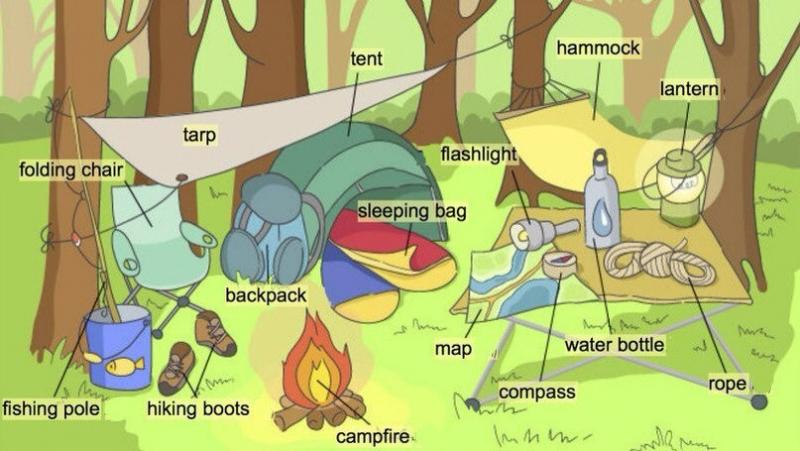
A polished 1-page resume documents your athletics achievements, leadership experience, academics, and personal strengths. Quantify statistics, honors, and awards to showcase your competitiveness relative to elite peers.
A clean, professional design branded with your jersey number makes a memorable, positive impression.
Secure Strong Recommendation Letters
Ask coaches, teachers, or community leaders who know you well to highlight your character, work ethic, and team contributions. Choose recommenders who can speak first-hand of your leadership, sportsmanship, motivation, and other intangibles.
Provide them with your resume and any helpful details on camps or programs you’re pursuing.
Maintain Grades and Test Scores
You’ll need outstanding academic credentials to secure an offer from a highly selective college. Maintain solid grades year-round, even as you ramp up sports commitments. Prepare thoroughly for standardized tests and aim for scores above the 75th percentile.
College athletic recruiting is a marathon, not a sprint. Stay focused on academics so you’re prepared to meet rigorous admission standards.
With strategic preparation and passionate effort, top lacrosse camps like Yale and Catalyst Athletics MVP Camp can be a springboard to take your game to the next level. Bring your A game both on and off the field!
Why attend a top-tier camp?
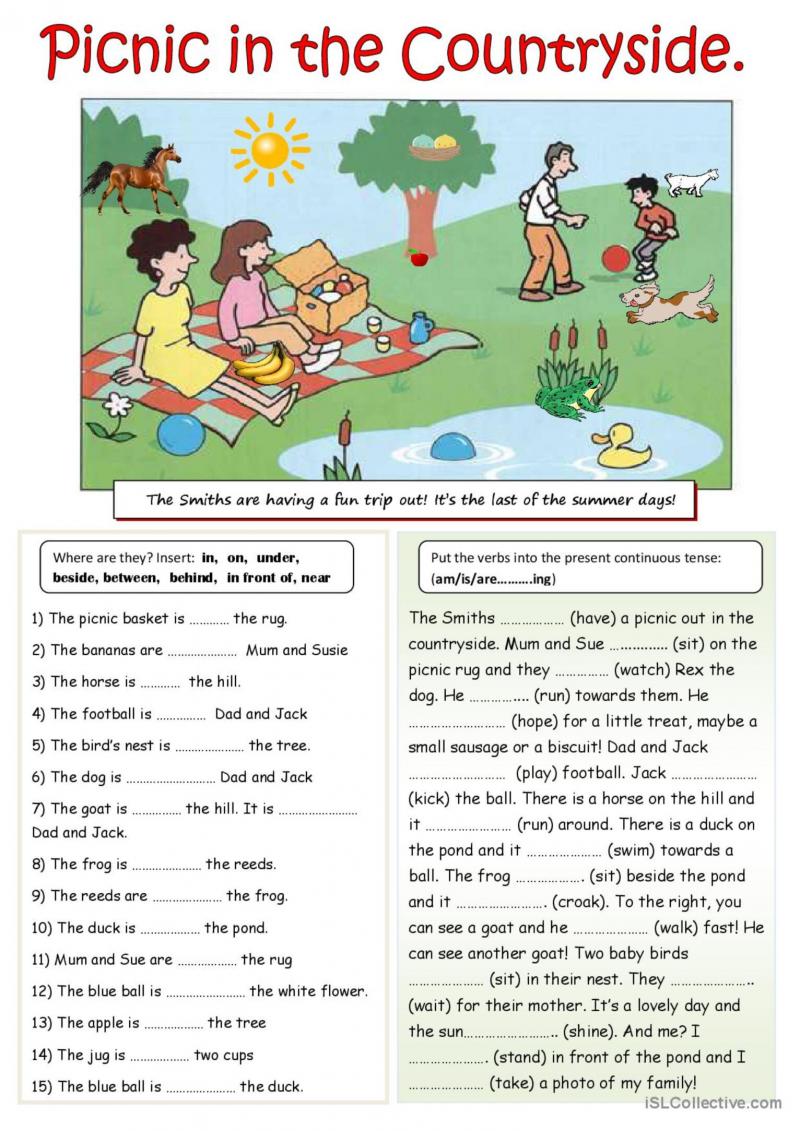
Summer. For many kids, those two syllables evoke images of lazy days spent at the pool, staying up late to catch fireflies, and devouring ice cream by the gallon. But for young athletes with their sights set on playing varsity or college sports, summer often means heading to elite camps and clinics to get a leg up on the competition.
Attending a top-tier sports camp has plenty of benefits. First and foremost, it’s an opportunity to learn from the best. Many of these camps are run by current and former professional athletes and coaches, so campers can pick up tips and strategies straight from the experts. The intensive training and high level of competition pushes athletes outside their comfort zones so they return home better conditioned and more skilled in their sport.
In addition to skill development, major camps provide exposure to college recruiters. Coaches from Division I, II, and III programs often scout prospects at summer showcases. Performing well could garner interest from college teams and potentially lead to scholarship offers down the road.
There’s also the prestige factor. Attending an exclusive camp like Nike’s The Opening or IMG Academy signals an athlete is serious about their sport and striving to reach the highest echelons. Competing with other talented and motivated athletes creates connections that can pay dividends during high school and college careers.
So how can you land one of the coveted spots at these ultra-competitive camps? It takes proper preparation, patience, and persistence.
Start preparing early
At the highest levels, reputation matters. Coaches running elite camps look for players with the right pedigree – those who have made all-conference or all-state teams, played on competitive travel squads, or stood out at other noteworthy camps. Starting to build an athletic resume as early as middle school gives you a better shot at getting noticed.
Work hard during the school season to earn all-league honors, awards, and individual records that will catch a scout’s eye. Playing on a winning team also looks good. Then fill the offseason by training with reputable coaches, joining premier travel/club teams, and attending combines to further develop your skills.
Success in school is expected too. Maintain solid grades to show you have the academic chops to thrive in a tough collegiate environment.
Ask your coaches to make highlight tapes showing your best plays and stats. Upload these to sites like Hudl to give camp evaluators easy access.
Register early

Elite camps often fill up a year in advance, so you need to plan way ahead. For summer 2023 slots, registration may open as early as May 2022.
Once registration opens, sign up immediately. Don’t hesitate or spots could be gone in hours. Most camps only take a small deposit upfront, so you won’t have to pay the full amount for months.
Create accounts on the camp websites so your info is ready to go when registration begins.Have payment info handy and submit the forms as fast as possible.
If your top choice sells out, get on the waitlist. Openings do come up over time. Also look into other quality camps and apply to multiple to increase your odds.
Put together a portfolio
The most prestigious camps require athletes to submit video highlights, stats, coach recommendations, and other materials as part of the application process. This portfolio showcases your abilities and achievements so evaluators can determine if you’re qualified.
Make sure your highlight reel includes your best plays – big hits and tackles for football, wicked slap shots in hockey, monster kills in volleyball, etc. Get clips from game film or have someone record you in action. Show some variety too – passing, running, defending, leadership, hustle plays, etc.
List any awards, records, all-star nods, etc. Quantify your progress year to year. Provide stats like 40-yard dash times, vertical leap measurements, batting average, goals against average, etc. Input all this into the camp’s portal.
Get reputable coaches to write recommendations speaking to your talent, work ethic, and potential. Character references from teachers also help.
With a polished portfolio presentation, you’ll look like the consummate student-athlete ready for the next echelon.
Follow up and make connections

Even after submitting your application, don’t stop lobbying. Follow up with emails or calls to reiterate your strong interest. Ask if they need any additional materials from you.
Make personal connections with camp staffers through social media like Twitter and Instagram. Comment on their posts and share content to get on their radar.
Network with former campers through team/club teammates and friends. See if they will recommend you to the coaches they know.
Keep pestering politely to get your name topof mind. When decision time comes, you want the evaluators to remember your determination.
Persist through disappointment
Not making the cut after months of hard work is tough. But don’t get too down on yourself or give up. Many great athletes get declined from camps early on before breaking through. Keep grinding and don’t lose confidence.
If you don’t get your first choice, go to other quality camps and dominate there. Keep adding to your resume. Ask evaluators for honest feedback on what you need to improve.
Stay positive and keep believing in yourself. Keep training hard. Maintain good grades. Then come back stronger and try again next year. Your time will come if you stick to it.
Landing a spot at a premier summer camp takes immense dedication and perseverance. But put in the work, and it will pay off with invaluable experiences that launch you to the next level as an athlete and competitor. Dream big, work hard, and leave it all on the field. You got this!
Here is a 1000+ word article on researching and applying to the best lacrosse camps this summer:
Researching the best lacrosse camps
Summer is just around the corner, which means it’s time for lacrosse players across the country to start thinking about attending summer camps. For young lacrosse players hoping to take their game to the next level, scoring a spot at an elite camp can be a huge boost. But with so many options out there, how do you identify the top programs and improve your chances of getting accepted?
First, start by researching the camps offered by the most prestigious college lacrosse programs. Places like Johns Hopkins, Syracuse, Duke, North Carolina, and Princeton run excellent summer camps each year. Getting instruction from the coaches and players at these lacrosse powerhouses is an invaluable experience. Check each program’s website for details on their summer camp dates, costs, locations, and application process.
Another great option is exploring camps run by club organizations and private companies. Programs like MVP Lacrosse, NXT Lacrosse, and Catalyst Athletics run intensive training camps each summer geared towards developing elite high school and youth players. The instructors they bring in are often former college stars and professional players. So you get access to top-notch coaching and a highly competitive environment against other talented athletes.
When researching camps, look for ones that match your skill level, position, and goals. Some camps cater to beginners and focus on fundamental skill development, while others are designed for advanced players to take their game to the next level through high-intensity drills and competition. Make sure the camp’s philosophy aligns with the type of instruction you need this summer.
Also consider the full camp experience – not just the lacrosse component. What are the housing accommodations like? What off-field activities and care are included? Are there team building exercises? Getting a well-rounded camp experience helps young athletes mature on and off the field.
Apply early and make your skills stand out

Once you’ve identified one or more great lacrosse camps to attend, focus on making your application stand out. The most prestigious camps often fill up fast, so apply early. Follow all instructions carefully and provide everything they ask for – letters of recommendation, skills videos, academic transcripts, etc. The better picture you can give of your abilities and development, the better your chances of securing a coveted camp spot.
A skills video is one of the best ways to make your application shine. Carefully curate video highlights that showcase your speed, athleticism, stick skills, lacrosse IQ, and more. Don’t just throw random clips together – create a polished video that will wow coaches and make you look like a top prospect they can’t pass up.
Letters of recommendation from coaches and others who can speak to your strong work ethic, leadership abilities, and lacrosse potential are also important. Provide recommenders with your resume, statistics, and any other details that can help them write a persuasive, comprehensive letter.
Lastly, express your genuine interest in their camp in your application essay or interview (if they offer one). Be specific on why you’re drawn to their program and philosophies. The extra effort will show your dedication and enthusiasm.
Financing your lacrosse camp experience
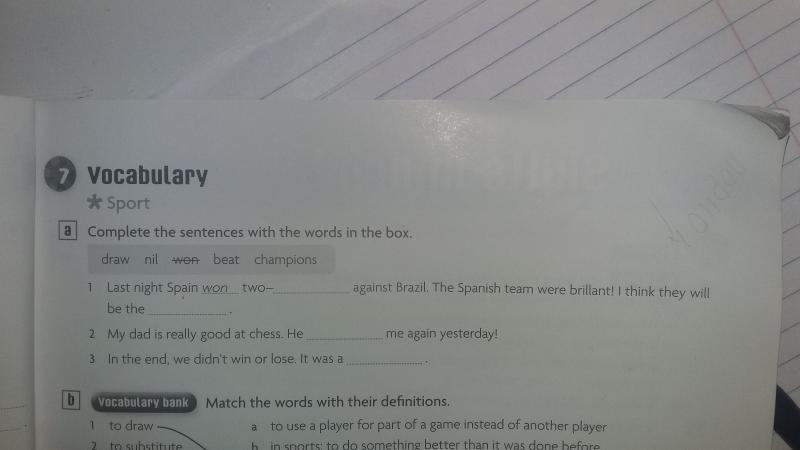
Attending an elite summer lacrosse camp is a worthwhile investment, but can be quite expensive. Costs often exceed $1,000 when factoring in registration fees, equipment, transportation, housing, and meals. But there are options to reduce the financial burden.
Many programs offer scholarship opportunities, family discounts, or sliding scale fees based on financial need. Be sure to ask programs about these options and apply early. You can also offset costs by doing some fundraising – sending out sponsorship letters to family, friends, neighbors, coach networks, or local businesses asking for support.
Another approach is to find a residential camp that offers Counselor-in-Training (CIT) roles for lacrosse players. CITs receive camp tuition discounts or waivers in exchange for helping with coaching, reffing, and general camp tasks. Not only do you get financial assistance, but you gain great hands-on leadership experience.
With smart planning, research, and preparation, landing a spot at a top-tier lacrosse summer camp is very achievable. The experience, coaching, and competition can take any player’s skills to exciting new levels. By applying to your dream camps early and putting your best foot forward, you’ll be honing your game this summer alongside the nation’s lacrosse elite in no time.
Finding the right fit for your MVP camp
MVP summer camps are a great way for young athletes to take their game to the next level. With so many options out there, it can be tricky finding the right fit that aligns with your goals, position, and budget. Here are some tips to help you identify the ideal MVP lacrosse camp experience this summer.
First, make a list of your must-haves. Do you want an intense, drill-focused program or one with more scrimmages? Are you looking to improve specific skills like shooting, dodging, or face-offs? Is being seen by college coaches a priority? Ranking your priorities will help narrow your options.
Next, research the coaching staff. The instructors make all the difference, so look for camps with experienced college or pro coaches leading training. Check their credentials and coaching philosophies to find those who match your needs as an athlete.
Also consider if you want a position-specific or general skills camp. For goalies, defenders, midfielders, and attackmen, position-specific training takes priority. But for younger or less experienced players, an all-skills camp can help develop versatility across multiple positions.
Look into the level of competition too. If you want to take your game to the next level, seek out camps that attract top talent from across the region or country to push yourself against elite players. The challenge will force you to elevate your play.
Be sure to balance lacrosse immersion with some fun too. The best camps blend intense field work with exciting team building activities away from the field. Look for programs that create a positive culture and memories that last beyond the summer.
Finally, factor in costs. Rates vary widely, so determine your budget and look for value at each price point. Don’t just default to the most expensive option. Many camps offer scholarships, family discounts, or other cost-saving perks if you ask.
By defining your goals and must-haves, researching thoroughly, and finding the ideal balance of competitive intensity, skill development, culture, and affordability, you’ll be ready to have an amazing MVP camp experience. Trust the process to discover your perfect program match this summer!
Key factors colleges look for
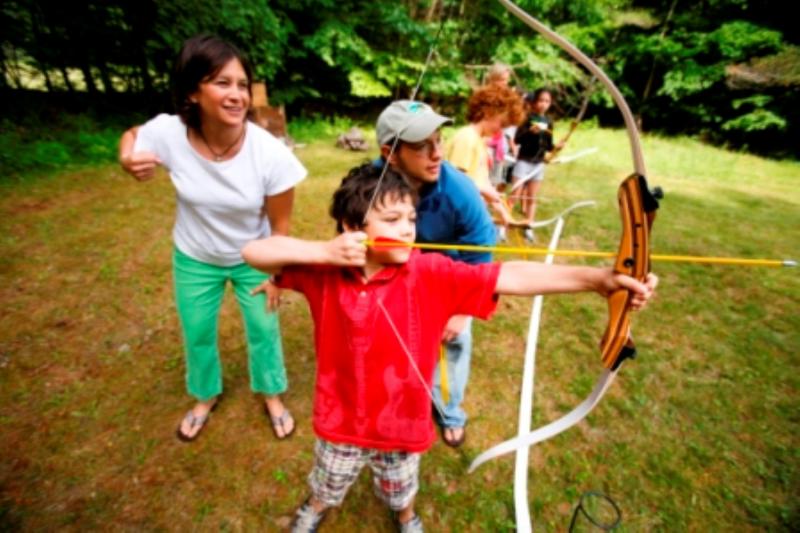
Attending an elite summer lacrosse camp is a great chance to get exposure to college coaches. But with so many talented players in one place, how can you stand out? Here are some of the key qualities and skills college coaches look for in prospective recruits at summer camps.
First and foremost, a strong lacrosse IQ and fundamental skills are critical. Coaches will assess your stick handling, shooting mechanics, speed, athleticism, and other technical abilities. Mastering the fundamentals shows your work ethic and lacrosse potential.
They also look for players with high lacrosse IQ – the ability to see the field, anticipate plays, and make smart split-second decisions. Understanding defensive schemes, offensive sets, and situational strategies demonstrates a high hockey IQ that translates to success at the next level.
Effort and motor are huge too. Coaches want players who go all out, show hustle, fight for ground balls, play stout defense, and give maximum effort, especially in drills. Bring energy and don’t take reps off.
Position-specific skills are also important. Faceoff specialists need quick reflexes, speed, and technique. Attackmen should show creativity, quick sticks, and finishing ability. Defenders must play physical, aggressive, and smart. Showcase your specialized role.
Coaches also look for leadership and team players. How do you interact with teammates? Do you communicate and lead by example? Be a coachable and positive influence on those around you.
Lastly, don’t try to do too much. Play within yourself and focus on doing what you do best. Don’t force shots or dodges or try overly fancy moves. Display your abilities through strong fundamentals rather than unnecessary flash.
By excelling in lacrosse IQ, mastering key skills, playing with maximum hustle and effort, filling your role, and being a leader and team player, you can stand out to college coaches this summer and take a big recruiting step forward.
Making a great first impression
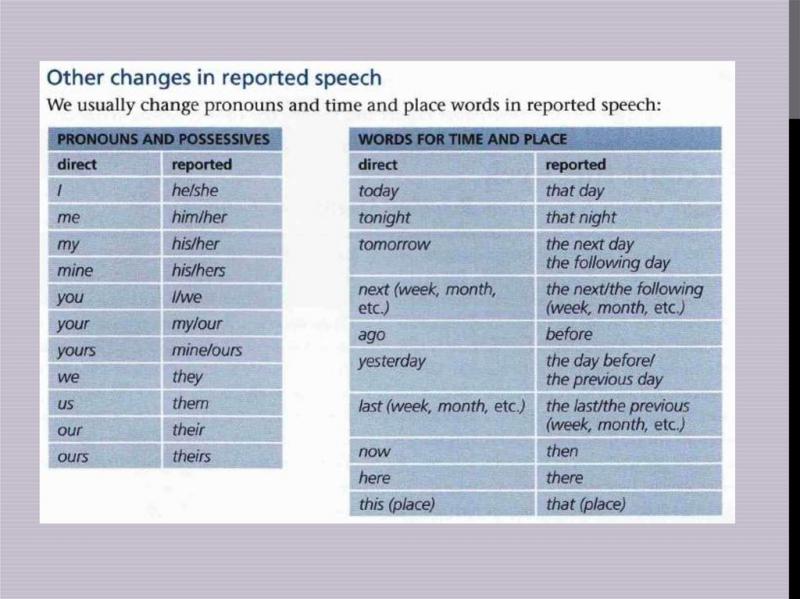
That initial introduction to coaches at summer camps can be crucial. Those first impressions go a long way, so you want to get it right. Here are some tips for making a stellar first impression at your lacrosse camp this summer.
First, dress and look the part. Have the proper gear bag, nicely kept equipment, and practice-ready attire. Look and feel like you belong from the start. Keep your gear organized and your shoes tightly laced – the little things matter.
Have a confident and polite introduction ready when meeting coaches for the first time. Look them in the eye, shake their hand firmly, and briefly share your name, year, position, and where you’re from. Short, direct, and impactful.
On the field, display maximum hustle and energy right off the bat. Be vocal directing teammates, sprint on and off the field, and run all-out to your position. Pursue every ground ball. Coaches notice those ready to work.
In drills, focus on showing perfect form and mechanics. For shooters, emphasize textbook shooting technique. Dodging middies should sell moves with speed and precision. Defenders need solid footwork and positioning. Executing the fundamentals flawlessly displays your skill and abilities.
And importantly, support your teammates. Provide encouragement, communicate, and collaborate. Lacrosse IQ and being a team player are huge, so put those leadership skills on display immediately.
Making a phenomenal first impression sets you up for camp success. Coaches’ early opinions carry weight, so control the controllable – prepare your gear, polish your skills, hustle non-stop, and be a vocal team leader. That initial impression can be the start of a coach relationship that lasts for years.
Standing out during drills and scrimmages
The drills and scrimmages at summer lacrosse camps offer the chance to showcase your abilities to coaches. Here are some tips for excelling during training sessions and games to catch coaches’ eyes.
First, know the drills inside and out. Be familiar with any routines and instructions so you can jump right in without hesitation. Study and learn the drills beforehand if possible so you can immediately lead by example.
Play with maximum intensity and effort, especially in competitive drills. Fight for every ground ball. Finish drills strongly even when fatigued. Coaches want competitors who bring it every rep.
Execute skills with perfect technique whether shooting, passing, dodging or riding. For defenders, use textbook positioning, footwork, and communication. Flawless fundamentals demonstrate your capabilities and training.
During scrimmages, communicate constantly as a leader. Direct teammates into proper positioning and rotations. Calling out cutters, picks, and switches displays your lacrosse IQ.
Look to get teammates involved, not just showcase yourself. Making the extra pass or redirecting praise to others exhibits your team-first mentality.
And have fun! Coaches want players who compete hard but also enjoy the game. Bring positive energy that lifts the whole group. Get excited after big plays.
By mastering drills, playing all-out, executing skills perfectly, leading vocally, involving teammates, and spreading positive energy, you can maximize your impact in camp sessions. Competing hard while having fun is the ultimate formula for standing out.
Getting quality facetime with coaches

Summer is right around the corner, and for many young athletes, that means sports camp season. Attending an elite camp can be invaluable – it’s a chance to gain exposure, get high-level instruction, and potentially catch the eye of college coaches. But landing a coveted spot at the most popular camps is no easy feat. These camps often book up far in advance and have limited space. So how can you secure your place at the top sports camps this summer?
First, start planning early and do your research. The time to start looking at summer sports camps is during the fall and winter months of the previous year. This gives you plenty of lead time to identify the best options, learn about application processes and deadlines, and get your ducks in a row. Look for camps that are well-suited for your sport, skill level, and goals. For example, Nike volleyball camps, IMG Academy baseball camps, and All-Star lacrosse camps are among the top choices for aspiring collegiate athletes. Make a list of your top camps and key details like dates, locations, costs, and application requirements.
Once you’ve identified your target camps, mark your calendar for application deadlines. Many elite camps start accepting campers almost a year in advance and have rolling admission. Don’t wait until the last minute – submit your application as early as possible to maximize your chances. Most camps will require an application form, coach recommendation, as well as a skills video. Make sure you allot enough time to gather and complete all required materials. Submit them promptly to get on the early acceptance lists.
A skills video is one of the most critical parts of a sports camp application. This gives coaches and staff a glimpse of your athletic abilities. Spend time filming high-quality video that showcase your strengths – for example, a hitter blasting line drives at the batting cages for baseball or an attacker dodging defenders in lacrosse drills. Ask your coaches for input on what to highlight in your video. Edit clips together to create a 3-5 minute reel that makes a stellar first impression.
Letters of recommendation from coaches or teachers are also key. Reach out to mentors who know your skills and character at least a few weeks before recommendations are due. Provide them with your sports resume, academic records, and any other materials that might help them write a compelling letter. Be sure to follow up and graciously thank them for taking the time.
Once you’ve submitted your camp application, follow up where possible. Many camps have limited staff, so a phone call or email reiterate your strong interest can help you stand out. Ask if they need any additional materials for your application. See if your top choice offers “walk-on” spots for promising athletes that get offered at the last minute. Be professional and polite in your outreach – this is another chance to make a good impression.
Attending “feeder” camps or showcases can also boost your chances for top camps. These events allow you to perform in front of coaches and scouts from premier programs. For example, regional Nike Football camps give players access to the Nike Opening Finals. Performing well at an Adidas basketball camp can lead to an invitation to the coveted Adidas Nations. Prove yourself at feeder events to get on the radar of major camp directors.
Camp scholarships and financial aid are available. Look for sponsorship opportunities from local businesses and non-profits in your community. Your coach may know of sports organizations that provide camp scholarships as well. Athletes with strong academics can often qualify for merit scholarships from the camps themselves. Complete your applications thoroughly and highlight academic achievements.
Ultimately, perseverance and patience is key when trying to secure a spot at in-demand sports camps. With smart preparation, stellar applications, follow-through, and flexibility, you can earn your place at camps that take your skills to the next level. Keep your goals in mind and stay positive throughout the process. Approach it like you would a tough tryout or playoff game. Put in max effort and leave the results on the field, court, or ice. With hard work and the right mindset, you’ll be wearing your favorite camp’s jersey this summer.
Building relationships with fellow recruits
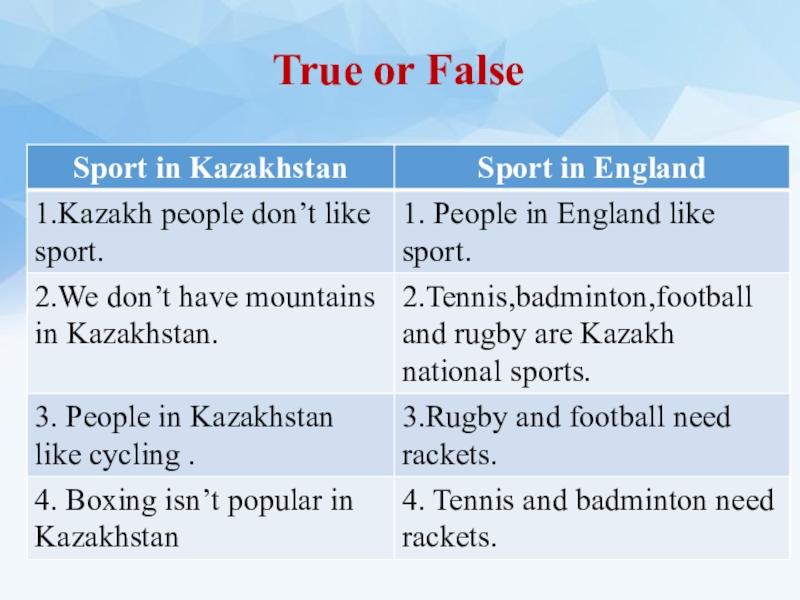
Summer is right around the corner, and for many aspiring young athletes, that means sports camps! Attending an elite camp can be invaluable for taking your game to the next level, getting exposure to top college coaches, and bonding with fellow players. But with demand higher than ever, how can you land a coveted spot at the most sought-after camps? Here’s some tips and tricks to set yourself apart and catch the eye of camp directors.
First and foremost, start building relationships early. Connect with fellow recruits who you may see at camps through social media and networking events. Get to know the players who will be your competition but also your teammates for the week. Foster a sense of community amongst your peers – you’ll push each other to excel. Don’t be afraid to reach out to seasoned veterans who have attended the camp before. Pick their brains on what got them accepted. Having an “in” through word of mouth can go a long way.
Do your research on the camp’s statistically accepted player profile. If you fall below their benchmarks for GPA or test scores, it may be an uphill battle. Be prepared to compensate with stellar essays, recommendation letters, athletic accomplishments or other extenuating strengths in your application. Demonstrating your uniqueness and what you’ll add to the camp cohort is key.
Start training early, as most camps have fitness benchmarks to hit. Arrive physically prepared to thrive in a demanding environment. Perfect any skills or drills you may be tested on. You’ll want to impress coaches right off the bat, so set yourself up for success. Bring your A-game mentally as well, ready to excel under pressure. Mindset is just as important as physical ability.
Cover all your bases with a well-rounded application. Don’t rely solely on stats and measurables – those will only get you so far. Craft thoughtful essays that showcase your passion, drive and rapport with teammates. Get glowing recommendations from respected coaches who can vouch for your character. Highlight leadership experience that shows maturity beyond your years.
Be proactive and reach out to camp directors. Build a relationship by meeting at tournaments or visiting campus. Ask thoughtful questions that show sincere interest in their program. Discern what they value most in recruits. Find any way to rise above the sea of applications they’ll receive.
Register early! Camps often operate on a first come, first served basis. Don’t wait for acceptance letters or test scores that may improve your chances. Get your name on the list ASAP, even if you haven’t met requirements yet. Slots fill fast, so take the initiative.
Remain politely persistent after applying. Check in periodically for updates on your status. Reiterate your strong interest. If waitlisted, be willing to attend a backup session or go on a cancellation list. Make it clear you’ll take any opportunity to attend.
Get creative and stand out from the crowd. Send handwritten notes, athletic tapes or other memorabilia along with your application. Suggest a phone call or invite staff to see you compete. The extra mile can make a difference when talent is off the charts across the board.
Line up backup options in case your first choice falls through. While passion is key, have realistic expectations for the most elite camps with single digit acceptance rates. It’s not just about talent – institutional preferences and quotas come into play. Maximize your chances by applying to multiple camps.
Lastly, demonstrate gratitude. Follow up afterwards with thank you notes to staff and coaches. Share your experience on social media tagging the camp. Provide quotes or testimonials they can use in marketing materials. You may just get invited back next year.
With strategic preparation, persistence, and a stand-out application, you can land your dream spot at the most selective summer sports camps. Just remember – the relationships and lessons you’ll gain are as valuable as any ESPN highlight reel moments. Let your passion shine through, on and off the field. Now get out there and own the summer!
Continuing communication after camp ends
Summer camp season will be here before you know it! For aspiring student-athletes across the country, scoring a spot at an elite sports camp is a coveted achievement. Not only is it a chance to get top-notch training, gain exposure, and connect with fellow recruits, but attending a prestigious camp can give your college recruitment prospects a significant boost. Competition is fierce for limited slots at camps like MVP Academy, Yale Lacrosse Camp, and Catalyst Athletics. So how can you get your foot in the door? Here’s some proven strategies to help you land a spot at the most sought-after camps this summer.
Starting early is key – work on your application over winter break or at the beginning of spring semester. That gives you plenty of time to craft a well-rounded submission showcasing both your athletic abilities and academic achievements. Meet standard benchmarks for GPA, test scores, and in-game stats if possible. Go above and beyond by highlighting unique experiences that set you apart, like volunteer work or creative hobbies.
Do your homework on each camp’s target recruit profile and specialties. Tailor your application to emphasize how you align with their goals and culture. Understand the type of player the staff looks for to complement their existing cohorts. Make it abundantly clear through your essays and supporting materials why you’re a great match.
Secure glowing recommendation letters from respected coaches familiar with your skills, mindset, and potential. Ask them to speak to specific anecdotes that capture your work ethic, coachability, and team spirit. Incorporate multimedia like athletic tapes, photos, or links to showcase your talents in action.
Don’t wait idly after submitting your application – follow up proactively via email or phone to reiterate your strong interest. Politely check on the status of your application and offer to provide any additional info needed. If waitlisted, get on cancellation lists and make your flexibility clear. Be willing to attend backup sessions if needed.
Get creative with ways to stand out among a sea of qualified applicants. Consider sending handwritten notes, souvenirs, or custom videos alongside your submission. Use social media to organically engage with camp staff and ambassadors prior to applying. Make them remember you.
Have backup options in your back pocket if you don’t get into your first choice. While having a singular dream camp is admirable, also be realistic about acceptance rates for ultra elite programs. Hedge your bets by applying to multiple camps and attending whoever accepts you.
Start training early, so you arrive physically and mentally prepared to thrive in a demanding camp environment. Perfect any position-specific skills you may be tested on during evaluation drills. Focus on conditioning too, so you can keep up with top players. Mindset is equally important – be ready to excel under pressure.
During camp, display your best abilities of course, but also intangibles like coachability, competitiveness, and camaraderie. Prove you’re truly passionate about elevating your game, not just chasing accolades or titles. Bond with fellow recruits – make authentic connections that last beyond camp.
After camp concludes, follow up promptly with thank you notes to staff and coaches. Provide testimonials, photos, or quotes they can use for promotional purposes. Share your positive experience on social media and keep engaging with the camp community. This builds goodwill for potential invites next summer.
Leverage the relationships, lessons, and exposure from camp when communicating with college coaches about recruitment. Reference skills you polished and specify how your game improved. Share inside knowledge that demonstrates your commitment to the sport.
Stay connected to fellow recruits you bonded with at camp through social media and texting. Forming relationships with players who may end up being college competitors or teammates is invaluable. Keep motivating each other to improve.
Incorporate any new techniques, drills or strategies you learned into your regular training regimen. Don’t let those skills fade once camp ends. Take advantage of the elite coaching you received and build upon it.
If you don’t get into your top camp this year, use it as motivation to improve so you get accepted next time. Analyze any weaknesses or development areas noted during the application process. Make those a priority for the offseason.
The benefits of attending an elite summer sports camp go far beyond awards or bragging rights. More importantly, it’s an unparalleled opportunity to propel your skills to the next level alongside top talent under the guidance of expert coaches. With strategic preparation and persistence, you can land a coveted spot at the most prestigious camps. Show your hunger – and own the summer!
Following up with college interest

The countdown to summer is on! For dedicated student-athletes across the country, that means one thing – sports camp season. Landing a spot at a premier camp like MVP Academy, Yale Lacrosse, or Catalyst Athletics can be a huge boost to your athletic development and college recruitment prospects. But with thousands of top prospects all vying for limited space, getting accepted into a top camp is no easy feat.
So how can you get a leg up on the competition and stand out in the application process? Here are some insider tips and strategies to help you secure your spot at the most elite camps this summer.
First, put in the work early. Start preparing your application materials over winter break or early spring – don’t wait until the last minute. Take time to craft thoughtful essays and testimonials that convey your passion for the sport. Highlight achievements in the classroom as well as on the field. Meet any GPA or test score requirements if possible.
Go above and beyond just submitting a standard application form. Make yourself memorable by providing custom videos, photos, or other creative materials like handwritten notes or personalized mementos. Demonstrate ways you’ll add unique value to the camp dynamic.
Secure strong letters of recommendation from coaches or teachers who can speak first-hand about your abilities and intangibles. Ask them to emphasize qualities like work ethic, coachability, and leadership. Glowing testimonials from respected references can tip the scales in your favor.
Be proactive about following up after submitting your application. Politely check on the status and reiterate your strong interest periodically. Make it clear you’ll do whatever it takes to attend, whether that means getting on a waitlist or attending a backup session.
If accepted, attend with an open and eager mindset – ready to soak up as much knowledge as possible from the elite coaching and top-tier talent. Bond with fellow recruits and build relationships that extend beyond camp. Stay humble and coachable.
After camp ends, promptly follow up with thank you notes to staff and coaches. Provide testimonials or photos they can use in promotional materials. Post positive shoutouts on social media. This fosters goodwill for potential future camp invites.
Stay in touch with fellow recruits you connected with at camp. Motivate each other in training and share recruiting journeys. Leverage those relationships when communicating with college coaches too.
Incorporate any new skills, techniques or insights gleaned at camp into your regular training regimen when you return home. Keep polishing those abilities rather than letting them fade once camp ends.
If any college coaches expressed interest in you at camp, be sure to follow up promptly. Send updates on off-season training goals and progress. Make your level of interest clear and reiterate why you’re a great fit for their program.
Attending an elite camp is a valuable opportunity to gain exposure to top college coaches, especially from programs you aspire to play for. Use any conversations at camp as a springboard for furthering your recruitment relationship.
Have a game plan for balancing multiple college coach discussions coming out of camp. Stay organized with call and email schedules. Reconfirm next steps in the recruiting process with each program.
Be mindful not to overlook schools that showed interest but may not be your first choice. Keep those options warm, as recruiting is always fluid. Don’t dismiss potential landing spots prematurely.
If you receive any new scholarship offers after camp, confirm details formally in writing before publicly announcing. Be responsive to coach calls and emails to show you prioritize their program.
As you narrow down your list of college options, emphasize to the remaining coaches why you’re a great culture fit for their program. Spotlight shared values and goals. Use specific language like “we” and “us” to foster inclusiveness.
An acceptance letter from an elite summer sports camp is just the first step. The valuable exposure to top college coaches presents opportunities, but you must continue nurturing those relationships. Follow up promptly and strategically to maximize your chances of landing a spot at your dream college team.
With focused preparation and persistence, you can score a coveted spot at the most sought-after camps this summer. Remember to embrace both the intense training and relationship building opportunities. Let your passion shine through in all you do – the rest will fall into place. Gear up for epic summer adventures!
Tips for creating a stellar sports video

Looking to create an exciting sports video that captures all the thrilling action? Whether you’re filming your kid’s soccer game for posterity or putting together an epic skiing montage, a stellar sports video requires careful planning and execution. Follow these pro tips to craft a sports video worthy of a stadium’s Jumbotron!
Pick the right equipment
A shaky, blurry video mars even the most epic sports moment. Invest in a camera and accessories tailored for action – think external microphones to capture clear audio over crowd noise, stabilized gimbals to offset bumps as you move, weatherproof gear to withstand the elements, and slo-mo modes for dramatic effect. Go for a DSLR or mirrorless camera with sharp image quality and the flexibility to swap lenses. You’ll also want spare batteries and ample storage space for lengthy shoots.
Master camera angles and movement
Watch sports broadcasts and take notes on how the pros capture the action from multiple angles. For soccer, station cameras behind the goal to follow the ball’s path, along the sidelines to track players downfield, and up in the stands for wide crowd shots. For basketball, cameras under the net highlight slam dunks, while courtside angles showcase fast breaks. Use tracking shots to follow players as they move and cut quickly between views to build excitement. Get creative with unique perspectives too – think a camera mounted on the backboard or a drone hovering above the field.
Focus on the story
The best sports videos showcase not just insane athleticism but also stirring underdog stories, close rivalries, and athletes overcoming adversity. Focus your shots and editing on specific narratives – a benchwarmer entering the game and scoring the winning point, synchronized divers holding hands before their last Olympic plunge, a team rallying after their star player gets injured. Switch between tight shots capturing emotions and reactions and wide shots placing the story in the roar of the stadium.
Highlight the action
Fancy equipment and clever angles alone don’t make a compelling sports video – you need fit, impassioned athletes actively playing to bring the footage to life. Capture fast-paced action like drives down the field, goals scored, and balls launched into the stands. Include tight shots of pivitol moments like a quarterback’s throw or a sprinter exploding from the blocks. Use slow motion to highlight incredible feats of athleticism. Time lapse clips of empty stadiums filling up build anticipation and atmosphere.
Get up close and personal

Put viewers right in the center of the action with POV footage from a camera mounted on a player’s helmet, bike, or board. These visceral shots add a thrilling sense of speed and motion. Also grab tight close-ups of athletes’ expressions as they celebrate victories and mourn defeats. Quick zooms and cuts between their faces and the crowd’s reactions add emotion and immediacy.
Enhance with audio
Crisp, vivid audio brings sports videos to life nearly as much as great visuals. Use wireless lav mics on coaches and players to capture their in-game interactions and instructions over the ambient noise. Stationary mics around the field or court pick up the roar of the crowd, sneaker squeaks, and ball swishes. Add inspirational music behind training montages and slow-motion replays to underscore the soaring human spirit.
Mind the editing
All the fancy gear and perfect shots mean nothing without skillful editing to weave everything into an engaging sports narrative. Think like a producer cutting live broadcasts and use quick cuts between cameras and short clips to build pace and excitement. Layer in graphics like titles, stats, and logos over the action. Sync stunning slow-motion replays with emotional music. Time ramping creatively speeds up and slows down highlights. Always keep storytelling top of mind.
Have a game plan
The best videos aren’t just randomly captured footage but scenes purposefully compiled together. Do your homework before the shoot – which team or player’s journey will you spotlight? Which moments and milestones matter most? Scout shooting locations and make notes on desired shots and angles. Storyboard specific clips you want to get. Nail down the arc of the video before you even start filming.
With the right preparation and equipment, an artistic eye, and solid editing skills, you can craft a sports video that captures all the passion, drama, and inspiretion of the game. Let these tips guide you as you set out to chronicle athletic pursuits and create share-worthy videos that do your sporting subjects proud.
Preparing a competitive lacrosse resume
Lacrosse is more popular than ever, with athletes competing at elite levels starting at younger and younger ages. As competition for spots at top clubs, high school varsity teams, and summer sports camps intensifies, players need to showcase their skills and experience to stand out. A well-crafted, achievement-focused lacrosse resume is essential.
Highlight relevant experience
List your lacrosse experience starting with your most recent and competitive teams. Include details like position played, jersey number, coaches’ names, key statistics, championship wins, and individual honors. Emphasize leadership roles like captain or MVP. For youth athletes, note All-Star teams, tournament and camp selections, and other distinctions.
Quantify success
Back up achievements with concrete stats and details that quantify your contributions. For attack positions, include season shooting percentages, points per game, goals, or assists. As a defender, highlight caused turnovers, ground ball pickups, and clearance percentages. Faceoff specialists should note win percentages. Provide context like ranking among team or league leaders.
Detail game experience
Note not just varsity letters earned but also quantified game experience like minutes played each season, games started, or games appearing in. Listing total games played for each team/season conveys longevity. Breaking down game stats per season shows improving performance.
Highlight coach relationships
Building strong bonds with coaching staff indicates team commitment and leadership. List the names and contact info for all recent coaches to provide references. Mention any coach-appointed leadership positions, awards from coaches, or other examples of their recognition.
Note multisport versatility
While lacrosse skills are the priority, mentioning athleticism in other sports like football, wrestling, or hockey shows versatility. List any other relevant high school or club sports teams played on, along with accomplishments like captain, MVP, or All-Conference honors.
Detail offseason training
List lacrosse camps attended, clinic participation, private coaching, and strength and conditioning work showing year-round dedication. Highlight any MVP or All-Star camp selections. Elite showcases and prospect events also demonstrate a commitment to honing skills and pursuing excellence in the sport.
Showcase academic commitment
Although lacrosse ability is the focus, noting academic honors like honor roll, Dean’s List, or other distinctions emphasizes work ethic and well-roundedness. Listing a challenging courseload and GPA (if above 3.0) is encouraged but optional.
Spotlight strengths and skills
Beyond quantifiable stats, include a skills summary section that showcases strengths like speed, conditioning, stickhandling, lacrosse IQ, footwork, or leadership intangibles. Use coach or evaluator quotes to back up these claims.
Keep it concise
One page is ideal length to quickly communicate credentials. Use clear, easy-to-read formatting highlighting accomplishments. Only include information relevant to lacrosse accomplishments and work ethic – keep extracurriculars focused on athletics.
Update and expand continually
Treat your lacrosse resume as a living document to update throughout your athletic career, adding new stats, accomplishments, coaches’ contact info, and skills. Expand to additional pages as needed, keeping the most relevant info up front.
With the ever-increasing competitiveness of elite club and high school lacrosse, an achievement-focused resume is now a must to showcase your skills, experience, and potential. Follow these tips to craft a compelling document that makes it impossible for coaches and recruiters to ignore you.
Securing strong recommendation letters
A glowing letter of recommendation can be the difference-maker that gets a student accepted to an elite high school, sports program, or summer camp. Choosing the right people to write these letters and providing them what they need to showcase the student’s worth is key.
Pick appropriate recommenders
Letters from coaches, teachers, and counselors who know the student well carry the most weight. Recent instructors are ideal as they can speak to current abilities and character. Letters from well-known community figures also make an impression.
Match recommenders to the situation
Tailor letter writers to the opportunity. For academic settings, teachers and counselors are most appropriate. Coaches and sports mentors make the most impact for athletic acceptance. Ask different people to showcase different strengths.
Provide recommenders context
Don’t just ask for a letter – give recommenders guidance on what to highlight. Share your goals, why you’re applying, required essay prompts, and what specific abilities you want conveyed like leadership, character, academics, or sports skills.
Share your full credentials
Give letter writers your resume, transcripts, awards, test scores, and other accomplishments so they can cite relevant examples of your achievements. Provide them any essays or written content you prepared as helpful context.
Suggest specific anecdotes
Jog recommenders’ memories by reminding them of specific stories that illustrate your strengths like overcoming adversity, demonstrating leadership, showing improvement, helping teammates, etc. This gives them engaging details to include.
Convey your passion
Recommendation letters should express not just accomplishments but personality and dreams. Share with writers why you love sports, how hard you’ve worked, and what receiving this opportunity would mean to you so they can describe your intangible worth and motivation.
Highlight key attributes
Tactfully guide recommenders on which of your attributes to focus on, like maturity, competitiveness, time management, integrity, teamwork, etc. Provide them quotes from other coaches praising these skills for them to cite.
Be gracious and patient
Give recommenders plenty of advance notice and make requests personally. Follow up politely if needed. Express sincere gratitude for their time and endorsement. Wait until they’ve submitted letters before asking to see them.
Request multiple letters if possible
A variety of enthusiastic recommenders strengthens an application, showcasing well-roundedness. Strive for 2-3 letters if permitted, each highlighting different strengths and stories.
Putting thought into who writes letters and what they include can get a student’s credentials in front of decision-makers backed by credible voices. Follow these tips to secure persuasive recommendations and gain that vital competitive edge.
Maintaining grades and test scores
Academic excellence remains vital for admission to top high schools, college recruiting, and securing sports scholarships – even for elite young athletes. Here’s how promising players can balance school and sports to keep grades and test scores high.
Set daily study goals
Treat studying like training by setting time goals. Minimum 30-60 minutes each weekday, plus several hours on weekends. Schedule study sessions in your calendar and protect that time. Study before sports when energy is highest. Prioritizing academics instills work ethic.
Maximize class time
Be present and engaged during lessons, take meticulous notes, and participate actively to absorb material. Pay close attention to assignments, due dates, and test dates. Ask teachers to clarify anything you don’t understand right away.
Get organized
Use planners religiously to record assignments, test dates, sports schedule. File notes, handouts, and textbooks neatly so they’re easy to access. Keep locker and backpack impeccably organized. Systematization prevents procrastination.
Find academic support
Seek out tutors, peer study groups, or trusted teammates who excel academically. Guidance counselors can connect you with resources. Leaning on others for help when needed shows maturity.
Communicate with teachers
Develop positive relationships with all teachers and keep them informed about sports commitments. Email any questions after hours. Provide proper documentation if you must miss class for athletics. Show you value academics.
Target improvement areas
Analyze grade trends to identity strengths and weaknesses. Reflect on why you struggle in certain classes. Set goals for boosting grades in problem subjects and create a plan to achieve them.
Learn time management
Block out specific blocks for homework, study, meals, training, etc on a schedule. Find pockets of time like study hall or car rides to knock out assignments. Consolidate tasks when possible. Work ahead when you can.
Eliminate distractions
No TV, phone, or internet while studying – they sabotage focus. Study in quiet spot free from disruption. Resist temptation to rush through work. Slow down, concentrate, and retain material.
Prepare thoroughly for tests
Start reviewing well in advance, not the night before. Summarize notes, quiz yourself, do practice tests. Cramming causes mistakes. Get plenty of rest before exams.
With diligence and focus, student athletes can achieve academic and athletic success simultaneously. These strategies help talented players demonstrate work ethic and preparation for the next level.